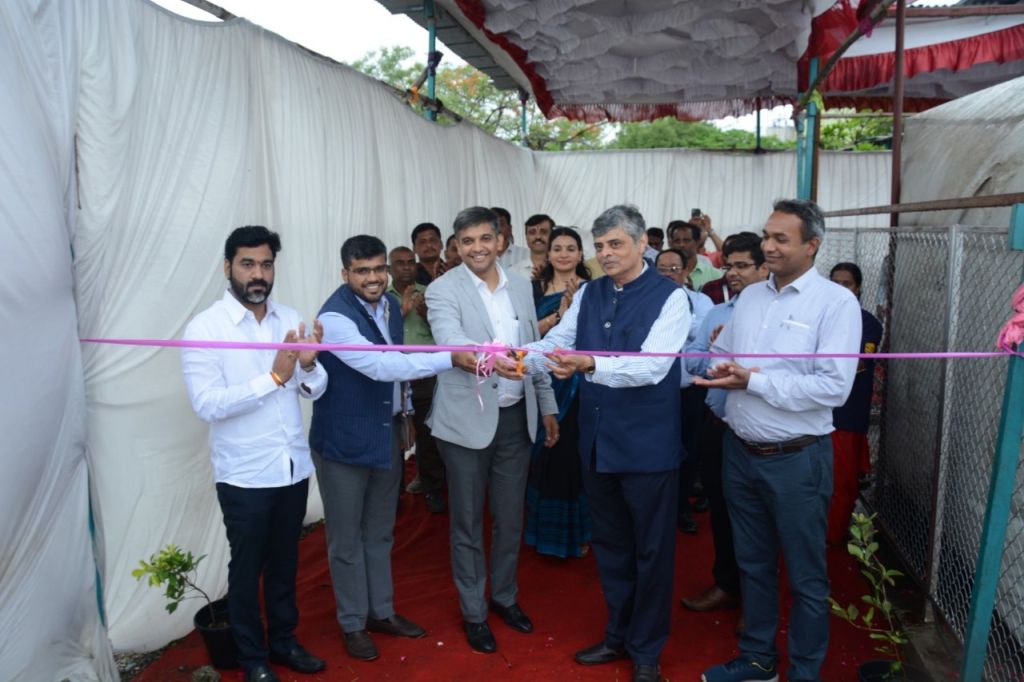*Launched at Solapur Bioenergy Systems Pvt. Ltd. (SBESPL) facility, the plant shall pioneer indigenous microbial technology by testing anaerobic digestion of diverse lignocellulosic and organic feedstocks with the ultimate aim of accelerating India’s clean energy transition.
Mumbai headquartered Organic Recycling Systems Limited (ORSL), a prominent engineering and technology company in the bioenergy sector, in collaboration with the Sardar Swaran Singh National Institute of Bio-Energy (SSS-NIBE) under the Ministry of New and Renewable Energy (MNRE), has officially launched a pilot-scale SEED/Culture-based biomethanation plant at the Solapur Bioenergy Systems Pvt. Ltd. (SBESPL) facility.
The novel project will advance India’s pursuit of sustainable and decentralized bioenergy solutions. Designed to validate the THERMI-NIBE microbial consortium, the pilot plant will test the anaerobic digestion of diverse lignocellulosic and organic feedstocks such as Napier grass, agricultural residues, and food/agro-industrial waste. The state-of-the-art facility will lead the way for scalable Compressed Biogas (CBG) production aligned with the Government of India’s SATAT initiative.
The launch of the SEED/Culture-based pilot plant transforms the SBESPL facility into one of India’s few live platforms where cutting-edge microbial technologies are applied to complex & real-world feedstocks. This shift repositions SBESPL as not just a waste processing unit, but a strategic center for clean energy innovation, shaping future-ready biomethanation standards and contributing meaningfully to India’s circular economy and energy transition goals.
Core Objectives of the Project
The core objective behind the development of this SEED/Culture-based biomethanation plant is to strive to enhance digestion rates for difficult-to-degrade biomass helping in maximizing biogas output from non-conventional feedstocks. The facility will bolster testing process stability and environmental sustainability by demonstrating readiness for commercial-scale deployment.
To support long-term feedstock requirements, ORSL has also initiated large-scale cultivation of Napier grass – a high-yield lignocellulosic crop – suited for thermophilic digestion across Solapur and its peripheries.
Mr. Yashas Bhand, CEO and Whole-Time Director of ORSL, stated, “By validating the SEED/Culture-based process under real-world conditions, we are not only addressing critical variables in biomass digestion and gas yield but also laying the foundation for a commercially robust and operationally scalable CBG model. This pilot is a strategic enabler that will inform future deployments and help de-risk upcoming investments across the sector.”
Dr. Sachin Kumar, Deputy Director and Scientist at SSS-NIBE, apprised, “The THERMI-NIBE culture deployment in a real-world setting at Solapur marks a critical step in moving beyond theoretical validation toward field-proven performance. By integrating this indigenous microbial consortium into a functioning biomethanation facility, we aim to establish definitive operational benchmarks for both decentralized and large-scale bioenergy systems. This initiative stands as a clear demonstration of how research-led innovation can be transformed into commercially viable and environmentally impactful clean energy solutions.”
With its successful commissioning and real-world validation, the Solapur pilot is poised to emerge as a ‘national reference model’ for scalable deployment across India’s biomethanation sector. The operational insights and technology benchmarks established through this project will directly inform the execution of India’s National Bioenergy Mission, advancing the vision of self-reliant clean energy generation through indigenous innovation and sustainable biomass utilization.
